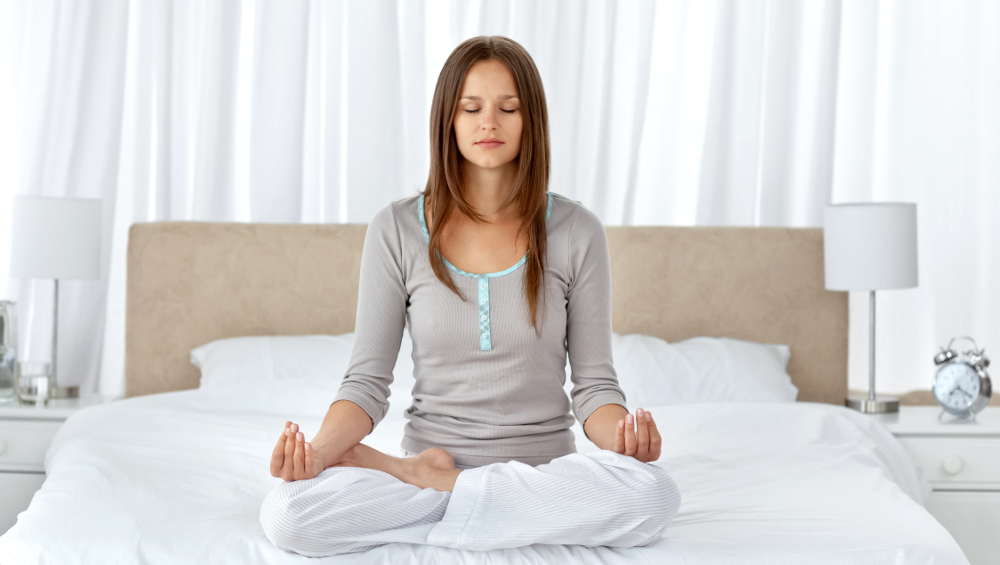It’s that time of the summer break when camps and family vacations are winding down and parents and kids eagerly look forward to another school year....
7 Ways to Improve Your Dreaming and Sleep
Walt Disney said,“if you can dream it, you can do it.” It makes you wonder how dreams can be useful for stimulating creativity, improving performance, and promoting mental emotional and possibly physical wellbeing.
Before you can dream, you must be able to sleep. More than sleep, is having an adequate amount of sleep, since the deepest and longest and most memorable dreams occur after having 5-8 hours of sleep. Below are my tips to promote longer and more quality sleep, as well as how to better remember and promote dreaming.
One: Set up the Bedroom

Make your bedroom conducive to sleep. Block out any light, using black-out blinds/drapes on your windows, removing all sources of light. Move electrical devices away from the bedside, particularly charging bases for any electrical device. Remove the clutter that is around or on your bed. Clearing up your space, allows you to use your space for its intended purpose, including for promoting sleep in your bedroom.
Two: Prepare Yourself for Sleep
Set yourself up for good sleep. This means avoiding stimulating exercise and stimulating lights and television/internet screen-time. Instead, for the 45 minutes before you get to bed, do some light stretches, relaxation breathing/meditation, have a warm foot bath, essentially, make a calming pre-sleep routine. To reduce stressful mental thoughts from invading, write down the highlights of your day to get it out of your mind. Even write a list of what to expect or plan for the next day, so you don’t do it mentally in bed when you are trying to sleep.
Three: Focus on Relaxing
Give yourself permission to let go into sleep. Too often I hear patients say they can’t turn off their minds or they think significant events or stressors that happened or will happen. To counter this, focus on relaxing. A useful method is called progressive muscle relaxation. In this method, you consciously and gently contract and then relax different parts of your body, one body part at a time, moving from head to feet. The relaxation phase helps you to let go of any tensions that you are carrying, while at the same time, keeping your thoughts on relaxing your body.
Four: Use Your Imagination

Another useful method to both promote relaxation and to promote dream activity is basically to direct your mind. While in bed, picture in your mind, as vivid as possible, a very relaxing, soothing, and calm place, perhaps a place you have been to before, and would like to go back to; or, imagine the place you would like to be. Make it a clear picture, including the sights, sounds, smells, and how you feel.
An example would be at a calm beach: feeling the warm sun on your body, hearing the slow waves, and feeling the sand or towel… you get the picture. Now while you are in this scene, imagine yourself relaxed, breathing easy and feeling good overall. By guiding your imagination, you guide your mind and body into a restful, sleep and dream promoting state.
Five: Alter your Diet
Basics include avoid eating 2-3 hours before bed, avoid caffeine-containing beverages in the afternoon and evening, and if you are prone to wake to urinate, avoid beverages in general 3-5 hours before bed. Herbal teas or supplements can help you relax your mind and body, some to consider include chamomile, passionflower, skullcap, and oat straw, and lavender. Speak to your health care provider to get more advice on drug-free ways to promote sleep.
Six: Keep a Dream Journal
To encourage dreams, you must keep a dream journal. Immediately when you wake up, write down any dreams you remember. Include as much detail as possible. This will actually train you to be more aware and conscious to your dreams and their remembrance.
Seven: Get More Help
It’s important to seek extra help when everything you have tried has not worked sufficiently. For example, some people who are prone to low or high blood glucose levels can wake prematurely, so get it checked with your medical or naturopathic doctor. If you are under high levels of stress, or experience chronic pain, your sleep is often affected, so getting counseling or appropriate treatment can lead to better sleep.
Related Posts
Sleep is an
essential human function. Sleep allows our physical body to rest and recover
from the events of the day. It also helps to recharge our brain and...
Dr. Adrienne Zarifis is a Naturopathic doctor with a passion for education. In this episode of Your Wellness Now, she discusses common issues people experience...
Sleep is an essential human function. Sleep allows our physical body to rest and recover from the events of the day. It also helps to recharge our brain and...
Dr. Adrienne Zarifis is a Naturopathic doctor with a passion for education. In this episode of Your Wellness Now, she discusses common issues people experience...
Categories
- Allergy Relief
- Bell Lifestyle News
- Brain and Vision Health
- Depression
- Digestive Health
- Eating Healthy
- Energy Boosts
- Fitness
- Foods for Energy
- Heart and Lung Health
- Herbs
- Immune System Support
- Lifestyle
- Men's Health
- Mental
- Motivation
- Natural Remedies
- Nutrition
- Pain Relief
- Physical
- Recipes
- Relationships
- Sexual Health
- Skin and Hair Health
- Sleep Health
- Social
- Stress Relief
- Uncategorised
- Videos
- Weight Management
- Women's Health
- Your Wellness Now
Follow us on Twitter
#90 Bladder One for Women™ is a convenient one-a-day capsule for urinary tract health, featuring herbal extracts in… twitter.com/i/web/status/1…
May 2023Urinary tract infections - UTI: To treat or prevent? That is the question. Find out more about causes and treatme… twitter.com/i/web/status/1…
May 2023"How you feel is very important to how you look. Healthy equals beautiful." - Victoria Principal #womenshealth https://t.co/OPShoEbOXb
May 2023
© Copyright 2024. All rights reserved.




